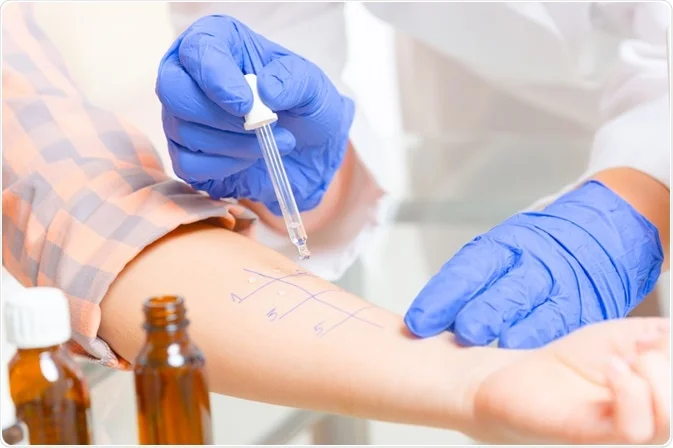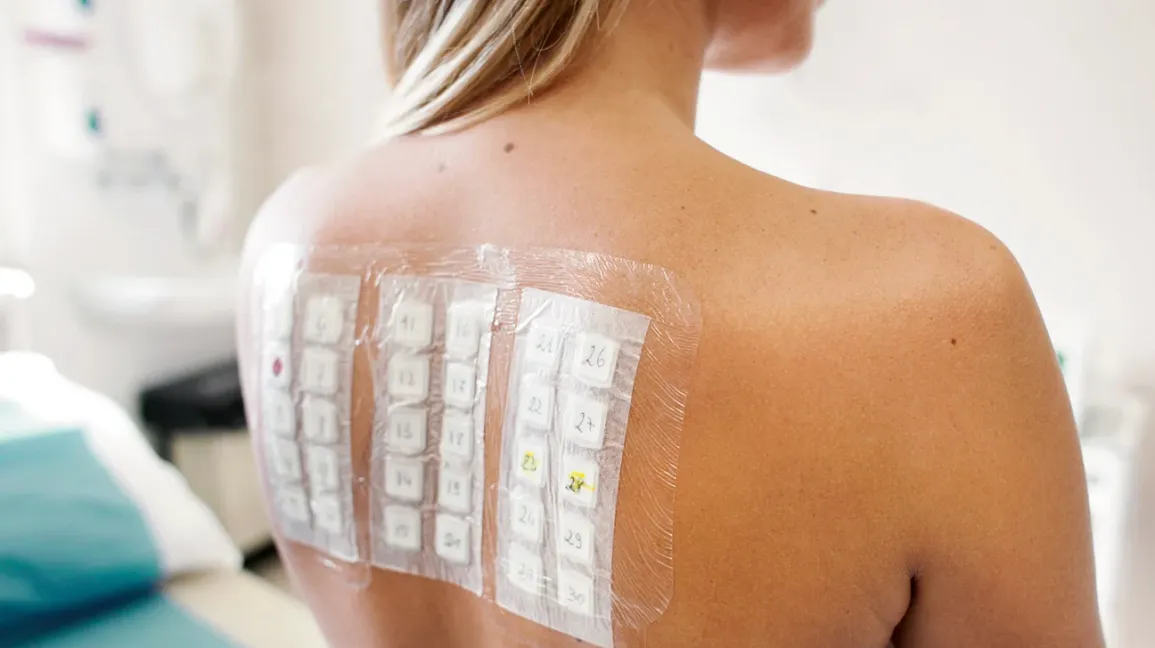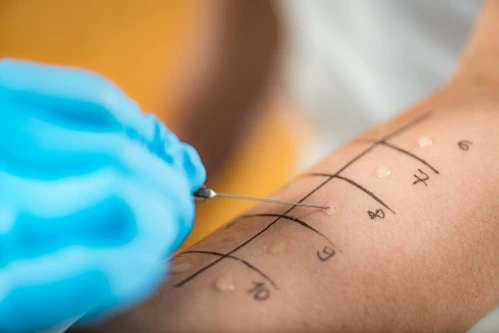Stepping through the examination can assist with deciding your allergens and the right course of treatment.
Many individuals experience consistent hypersensitive responses without knowing the reason. Sensitivities happen when the safe framework responds unusually to an unfamiliar substance. To sort out which allergen you are responding to, you really want to go for a skin or blood allergy skin test results chart. Skin Allergy tests assist you with recognizing the reason by presenting your skin to minute measures of possible allergens. In light of the outcomes, your PCP can propose a treatment plan.
This article will address every one of your inquiries in regards to skin Allergy tests. Look down to know more!
What Is An Allergy Skin Test?

A allergy skin test results chart assists you with distinguishing the reason for your Allergy. As per Dr. Wong Before long Tee, a specialist dermatologist, "A Allergy skin test is a highest quality level in figuring out what substance an individual is susceptible to. It is utilized notwithstanding clinical history to shape a precise finding."
Various allergens - like form, pet dander, honey bee stings, and peanuts - cause unfavorably susceptible responses in individuals. The response might appear as a rash, irritation, breathing trouble, sickness, and so on. To keep away from these unfavorably susceptible responses, you really want to go through a skin response test. Skin testing is one of the most solid types of Allergy testing. It is a fast, touchy, explicit, safe, and generally economical test.
A concentrated fluid type of normal allergens is utilized to play out this test. Your primary care physician distinguishes the allergen by presenting your skin to the allergens.
When Should You Get A Skin Allergy Test?
Unfavorably susceptible skin testing analyze an assortment of medical problems like roughage fever, asthma, dermatitis, food sensitivities, penicillin Allergy, honey bee toxin Allergy, and so forth. The normal side effects of an unfavorably susceptible response include:
Migraine
Breathing difficulty, wheezing, or constant hack
Irritation or rash
Watery eyes
Sore throat
Enlarging of the face, lips, or tongue
Chest or throat snugness
Queasiness and regurgitating
Stomach torment and spasms
Fair skin
Frail heartbeat
Dazedness
However skin tests are typically ok for grown-ups and newborn children, your PCP might exhort against them assuming you are:
What Are The Types Of Skin Allergy Tests?
Skin Prick Test: It is the most normal Allergy test. It recognizes aversions to dust, form, pet dander, dust parasites, and food varieties. In this test, your skin is pricked with 10-50 expected allergens. One more approach to doing it includes leaving the allergen remove on your skin after gently penetrating the region so the fluid enters your skin. You might see responses inside 10-15 minutes of openness. You might foster a rash or raised round spots (called wheals) on the off chance that you are oversensitive to any substance.
Chay, a blogger, shared her experience of going through the skin prick test on her own blog: "All things considered, it was affirmed to me around a long time back through a skin prick test that I have Allergy to fish, plastic and bananas (which according to my allergologist's clarification, has a nearby significance to one another) and other stuff. In any case, of late, I've been thinking that I could have fostered a fairly greater Allergy to a ton of things - including the air. So I concluded the time has come for I to go through another test.
In some cases, during a skin prick test, your primary care physician may likewise scratch substances like receptor or glycerine on your skin to check whether it has a norm or hypersensitive response. This is known as the skin scratch test.
Fix Test: A fix test decides the reason for skin sensitivities like contact dermatitis. The fix with the allergen is saved on your skin with a swathe for 48 hours (3). It is eliminated to check for a rash or some other responses. It assists you with recognizing deferred unfavorably susceptible responses. You might be presented to 20-30 concentrates of expected allergens during this test.
Intradermal Skin Test: In the intradermal skin test, modest quantities of the allergen are infused into the external layer of the skin. The region is inspected following 15 minutes for any responses. It is in many cases performed when the skin prick test results are uncertain (3). This test is suggested for airborne aggravations, meds, and bug stings.
Skin Responsiveness Test: These are confined tests done on the skin to fix test responses to another item on the skin. This is typically finished for corrective items, hair colors or skin drugs.
Skin Allergy tests are protected and negligibly obtrusive. Notwithstanding, you ought to know how to set yourself up prior to going through one of them. Figure out how to do that in the following area.
How To Prepare For Skin Allergy Testing?

Prior to playing out a skin Allergy test, your PCP might request your clinical history, signs and side effects, and how you normally treat them. These will assist the specialist with deciding whether sensitivities run in your family or on the other hand on the off chance that it is an unfavorably susceptible response or something different. The specialist may truly inspect you to break down extra causes and side effects.
Quit taking drugs like antihistaminesi 7 days before the test. "Prior to having a allergy skin test results chart, converse with your allergist or specialist pretty much the entirety of your ongoing remedy and non-prescription meds to figure out what meds can disrupt your test," adds Dr. Wong Before long Tee. These meds can stop your invulnerable framework's reaction to allergens and influence the outcomes.
What Should You Expect During A Skin Allergy Test?
Your PCP will play out the test in view of your side effects. Your body will show responses at the test site in the event that you are sensitive to any allergens. The clinician will record every one of the perceptions of the test. You might have gentle side effects like irritated skin, watery eyes, or blockage. "The prick test and intradermal tests might hurt a bit. You ought to likewise expect a tingle where the allergens were put on the off chance that you are delicate to any of the allergens," Dr. Wong Before long Tee adds. A dermal skin disturbance test is performed on the external layer of the skin and a positive test might cause redness and tingling.
Your side effects might clear up in a couple of hours after the test.
Allergy skin tests are protected in light of the fact that main a modest quantity of allergens are put on your skin. Notwithstanding, you should go to essential after-care lengths. Continue to peruse to find out about what you want to do.
What Should You Do After A Skin Allergy Test?
The imprints or tingling from the test disappear in a couple of hours. You might utilize a gentle cortisone creami to diminish tingling. On the off chance that it is a fix test, don't wet the swathe region.
In the event that the experimental outcomes are not satisfactory, your PCP might suggest more tests. When you know your triggers, your PCP can begin the treatment plan in like manner. You might be recommended meds to control your side effects.
While these skin aggravation tests are protected, there are still a few potential unfavorable responses that you ought to know about. Figure out more in the following area
Risks And Side Effects Of Skin Allergy Testing

The greatest gamble engaged with skin allergy skin test results chart is the chance of an anaphylaxisi response. Nonetheless, you don't have to stress as your clinical supplier will be ready to treat it. You might require crisis care on the off chance that you experience a serious response during a Allergy test.
Intradermal skin testing has a higher gamble of anaphylaxisi because of the greater centralization of allergens (3). At the point when an allergen is acquainted with the skin, pole cells might cause in excess of a nearby response. The medical care proficient may perform skin jumble tests like biopsy or blood tests to analyze complex skin conditions.
